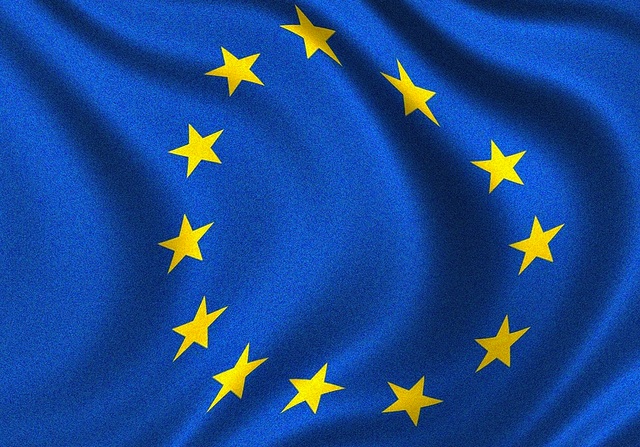
Jun 18, 2021 | News
European Union affairs ministers should put the governments of Hungary and Poland on notice that there is no place for attacks on the rule of law in the EU and step up scrutiny of their human rights-abusive policies, the International Commission of Jurists (ICJ), Amnesty International, Human Rights Watch, the International Federation for Human Rights (FIDH), the Open Society European Policy Institute (OSEPI) and Reporters Without Borders (RSF) said today.
Ministers from EU member states meeting in the General Affairs Council session on June 22, 2021 will discuss the situations in Poland and Hungary under the Article 7 procedure. Article 7 is the mechanism provided for in the EU treaty to hold accountable governments whose actions threaten the bloc’s rule of law, human rights, and democratic principles.
“The EU should respond to the critical situation in Hungary and Poland by using the powers available to it under Article 7 TEU to defend human rights and the rule of law. We hope that EU Ministers will finally send a strong signal to Poland and Hungary next week that undermining these values cannot be accepted,” said Róisín Pillay, Director of the ICJ Europe and Central Asia Programme.
Resuming hearings on the situations in Hungary and Poland under Article 7 is a strong signal from the Council that violations of EU principles will not go unnoticed within the Union, the organizations said. But EU ministers have a responsibility to make up for the time lost and show readiness to take further action as the situations in both countries continue to deteriorate.
Read the full statement here: euart7june17-ENG-2021
Further information:
The European Commission invoked Article 7 in December 2017 for the first time since its creation in response to the dramatic erosion of judicial independence in Poland by the Law and Justice (PiS) Party government. But the EU Council, consisting of the member states, has not held a formal hearing regarding the situation since September 2018.
The European Parliament triggered article 7 in September 2018 for Hungary because of the repeated deliberate attacks on democratic institutions and human rights by the Fidesz-led government, but the Council has not convened a hearing on the matter since December 2019. EU officials contended that discussions related to Article 7 could not take place during the Covid-19 pandemic, allegedly because EU ministers could not meet in person during this period.
While EU action has stalled Poland’s government has continued to strengthen its grip on the judiciary. Many judges and prosecutors have faced arbitrary disciplinary proceedings for speaking up against problematic judicial reforms. The government has used a politically compromised Constitutional Tribunal to bypass parliamentary objections to its efforts to undermine independent institutions and erode rights across the board. The concerns over the functioning of the Tribunal include, in particular, mishandling of cases by its president and unlawful change in the composition of the already designated hearing benches.
In October 2020, at the behest of the Polish government, the Constitutional Tribunal severely undermined access to sexual and reproductive rights for women in Poland by extending the existing ban on abortion to include cases of “severe and irreversible fetal defect or incurable illness that threatens the fetus’ life”. In April, the government used the same tribunal to discontinue the mandate of the country’s human rights Ombudsman, despite the delays in the appointment of a successor. The government is also using the Constitutional Tribunal to seek decisions on the validity of the Istanbul Convention on preventing violence against women and to try to undermine the binding nature of decisions by the EU Court of Justice on Polish law.
In Hungary, the government used the Covid-19 pandemic as a pretext to intensify its attacks on the rule of law and public institutions, increase executive power, and limit human rights, including the rights to freedom of expression, information and peaceful assembly. Hungary finally abided by the June 2020 EU Court decision by repealing a 2017 law forcing civil society organizations receiving over 20,000 EUR per year in foreign funds to register as foreign-funded. But at the same time the government introduced a new bill requiring the national State Audit Office to conduct annual financial inspections of civil society organizations that report more than around 55,000 EUR, with the risk that it could create a new method to demonize and obstruct the work of watchdog groups. The draft bill leaves untouched the controversial 2018 law criminalizing groups giving assistance to asylum seekers.
In July 2020, the editor-in-chief of Hungary’s largest online independent daily, Index.hu, was fired as a result of a financial takeover of the company controlling its revenues by a person with close links to the country’s ruling party. In September, the Media Council, a broadcast regulator tied to the executive after controversial changes passed early in the decade, revoked the frequency for the independent Budapest radio station Klubradio, forcing it off the air. On June 9, the European Commission opened a new legal proceeding against Hungary on the basis that the decision to take Klubradio off the air was discriminatory and non-transparent.
Civil society groups in Poland, Hungary and elsewhere in the EU have criticized the European Council and European Commission for failing to uphold the bloc’s founding values of respect for human rights and the rule of law in countries that breach them.
In December, the EU established a new mechanism conditioning EU funding upon respect for the rule of law, but both the European Commission and the Council have succumbed to Hungary and Poland’s blackmailing and announced they would not start enforcing the measure until autumn. On June 10, the European Parliament took the European Commission to Court if it further delays the implementation of the mechanism.
European ministers should continue to convene regular hearings on the situations in Poland and Hungary and take all steps available under Article 7 to hold both governments to account for violating the EU’s core values. These should include adopting specific rule-of-law recommendations that Poland and Hungary’s governments should carry out by a set deadline and, absent any concrete steps toward compliance, work toward the required four-fifth vote to determine that there is a clear risk of a serious breach of the values protected by the EU treaty. Such a determination would open up the possibility of sanctions that the Council could adopt, by unanimity, to react to this breach.
For more information please contact:
Karolína Babická, +32475462067, karolina.babicka@icj.org

Apr 22, 2020 | News
In a joint letter to EU Member States, the ICJ and other human rights NGOs have urged them to recognize the grave implications for human rights and the rule of law, of the Hungarian government’s recent emergency measures.
Ahead of the Council of the EU videoconference of EU Affairs Ministers to discuss the response to COVID-19, Amnesty International, International Federation for Human Rights (FIDH), Human Rights Watch, the ICJ, Open Society European Policy Institute and Reporters Without Borders (RSF) urged the Council to take immediate steps to protect the principles enshrined in Article 2 of the Treaty on European Union (TEU), and the rights enshrined in the EU Charter of Fundamental Rights. This is particularly needed in light of the already deteriorated state of the rule of law and human rights in Hungary, which warranted the activation, in September 2018, of the procedure laid down in Article 7.1 TEU.
The organisations urged the member states of the European Union to:
- include in the agenda of the upcoming session of the EU General Affairs Council an Article 7.1 TEU hearing on the situation in Hungary, including recent developments in relation to the COVID-19 outbreak, and address to the government of Hungary, as a matter of urgency, concrete recommendations to safeguard respect for the rule of law and human rights in the country, that the Hungarian government must implement by a set deadline;
- commit to assessing the implementation of the recommendations in a timely manner in order to reach a determination under Article 7.1 TEU and, should conditions warrant it, move forward under Article 7.2 TEU.
- ensure enhanced monitoring of the Hungarian government’s use of EU funding, including funds aimed at supporting member states during the public health crisis.
The organisations urged both the Council and the Commission to cooperate with each other, and with the European Parliament and national parliaments, to ensure a coordinated, consistent and effective response to the situation.
The full letter is available here: CSO Letter to GAC -rule of law in Hungary April 2020

Mar 23, 2020 | News
The ICJ called today on the Parliament of Hungary not to approve a Government bill that would extend indefinitely the emergency powers of the executive to counter the Covid-19 pandemic.
The proposed legislation would enable executive rule by decree, without parliamentary approval, and would impose harsh restrictions on freedom of expression.
“States of emergency, whatever the reason to invoke them, must never be allowed to become permanent,” said Róisín Pillay, Director of the ICJ Europe and Central Asia Programme.
“Emergency measures that restrict human rights must be constantly reassessed to ensure that they remain necessary and proportionate. And even where measures are temporarily necessary, they should be subject to a “sunset clause” that ensure that it can be reviewed and will lapse if no longer justified ”.
The Hungarian emergency legislation includes offences of publishing false or distorted facts that interfere with protection of the public or cause public alarm – offences which have the potential to significantly and unduly restrict freedom of expression.
International human rights law requires that any interference with freedom of expression must be in sufficiently clear terms to be adequately prescribed by law and must be necessary and proportionate to the legitimate aim that it serves.
“This legislation is particularly worrying in a context where the Hungarian government has systematically undermined the rule of law and protection of human rights, including freedom of the media and civil society, and the independence of the judiciary in recent years,” Róisín Pillay added.
“The emergency powers are therefore particularly open to arbitrary or abusive application, without effective scrutiny by parliament or an independent judiciary.”
Background
The Bill on Protection against the Coronavirus (Bill T/9790) in the form of tabled by the Government will extend the state of danger that it had ordered by government decree from 11 March 2020.
The ICJ understands that the Bill will allow the government to rule by decree without Parliamentary scrutiny. The legislation would make it a criminal offence, punishable by imprisonment, to publish false or distorted facts that interfere with protection of the public or that alarm or agitate the public, or to interfere with a quarantine or isolation order.
Under international treaties to which Hungary is a party, including the European Convention on Human Rights and the International Covenant on Civil and Political Rights, States may take emergency measures to derogate from their international human rights law obligations in times of crisis, only the extent strictly necessary to protect the life of the nation. Derogating measures may only limit the scope of certain rights to the extent strictly necessary to meet a threat to the life of the nation, but they do not entirely suspend the applicability of any right in its entirety.
This necessity must be continually re-assessed so that the derogating measures apply for the shortest time possible. Certain human rights, including the right to life, the prohibition of torture or ill-treatment, and the essential elements of arbitrary deprivation of liberty and to a fair trial and the right to an effective remedy can never be restricted even in a state of emergency.

Nov 18, 2019 | News
The ICJ today called on the Hungarian authorities to desist from instigating disciplinary proceedings threatened against Judge Csaba Vasvári, a judge of the Central District Court of Pest and a member of the Hungarian National Judicial Council.
The imminent threat of disciplinary action is a consequence of a preliminary reference Judge Vasvári made to the Court of Justice of the European Union.
“Judge Vasvári faces disciplinary action as a direct result of his request for a preliminary ruling of the Court of Justice of the EU on the very question of judicial independence in Hungary. This is an extremely concerning attempt to interfere with the independence of a judge in discharging his judicial function which, if it proceeds any further, will set a dangerous precedent.” said Róisín Pillay, Director of the ICJ’s Europe and Central Asia programme.
A motion to begin disciplinary proceedings against Judge Vasvári was brought by the Acting President of the Budapest Regional Court in October, following Judge Vasvári’s request in criminal proceedings before him last July, for a preliminary ruling the Court of Justice of the EU (CJEU) under Article 267 of the Treaty on the Functioning of the European Union (TFEU).
In the request to the CJEU, Judge Vasvári raised questions regarding compliance with the principle of judicial independence under Article 19.1 of the Treaty of the European Union (TEU), in particular the appointment procedures for court presidents, and remuneration for judges, as well as questions regarding the right to interpretation in court.
Following a decision of the Hungarian Supreme Court in September that the reference was contrary to Hungarian law since it was irrelevant to the case, disciplinary action against judge Vasvári was sought on the grounds that in making the reference, he violated the requirement to conduct himself with dignity and refrain from action which would undermine the dignity of the judiciary.
The motion for disciplinary proceedings is now expected to be considered by a panel of the Service Court, which will decide if disciplinary proceedings will commence.
“The actions of Judge Vasvári in making a preliminary reference to the CJEU were an entirely legitimate exercise of his judicial functions in accordance with EU law. It is essential that judges are able to use all appropriate judicial avenues to address and uphold the rule of law, including to protect the right to a fair trial and the independence of the judiciary” said Róisín Pillay. “It is also necessary for the proper application of EU law, that judges are able refer questions to the CJEU under Article 267 of the Treaty without undue hindrance.”
The ICJ recalls that under international standards on the independence of the judiciary, judges must decide matters before them impartially, without any restrictions, improper influences, inducements, pressures, threats or interferences, direct or indirect, from any quarter or for any reason (Principle 2, UN Basic Principles on the Independence of the Judiciary). Council of Europe Recommendation CM/Rec (2010) 12 of the Committee of Ministers specifies that “the interpretation of the law, assessment of facts or weighing of evidence carried out by judges to determine cases should not give rise to civil or disciplinary liability, except in cases of malice and gross negligence.”
The UN Basic Principles on the Independence of Judiciary (principle 8) also affirm that “members of the judiciary are like other citizens entitled to freedom of expression, belief, association and assembly; provided, however, that in exercising such rights, judges shall always conduct themselves in such a manner as to preserve the dignity of their office and the impartiality and independence of the judiciary.”









